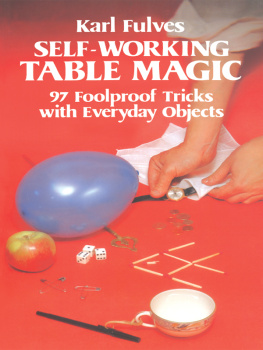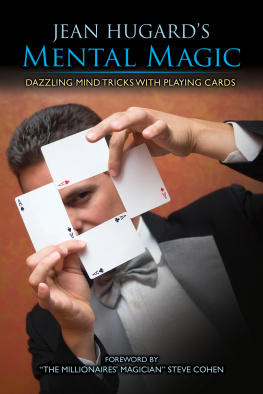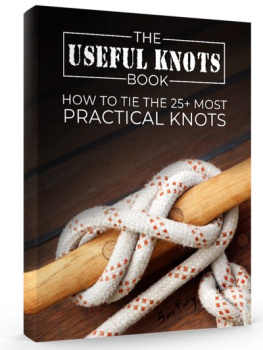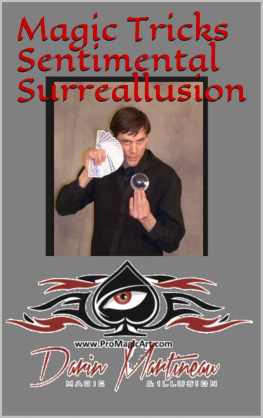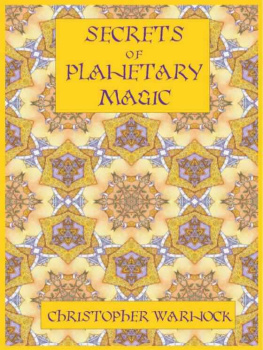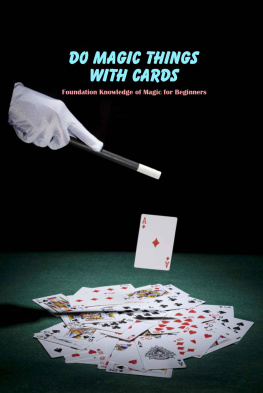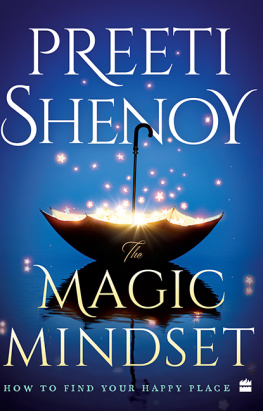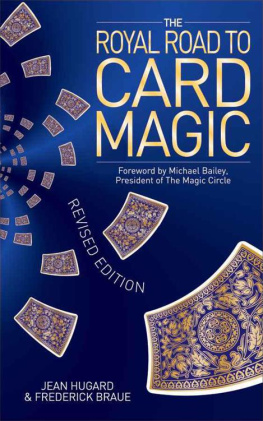Cover
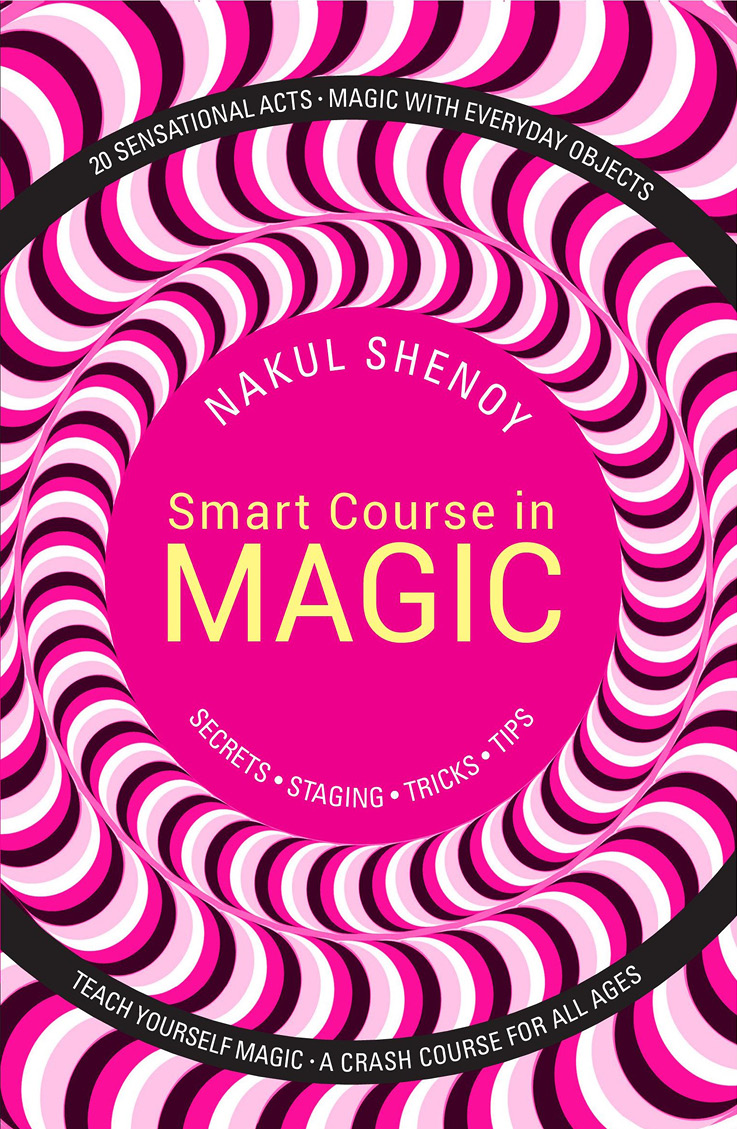
Title page
Smart Course in Magic
SECRETS STAGING TRICKS TIPS
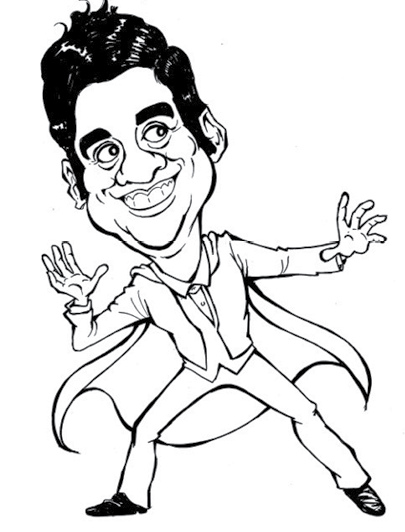

Dedication
To Ajja , K.G. Kamath, for making me believe. And giving me the belief that I can. I miss you.
To Inesh and Ishaan , for making magic in their own inimitable way and teaching me that magic is really in the way we see it that magic is in our minds.
To Iresh , who is too young to care too much about what his baba is typing on the iPad. All he wants is for me to play with him and he can make that happen with his magical smile.
Contents
Peter Lamont
I first met Nakul when he was a student in Udupi, an extremely bright young man, who was also a magician, and a very knowledgeable one. He was bright in the full sense of the word; not just intelligent, but hungry for knowledge always asking questions.
I was lecturing at the wonderful Gili Gili convention organized by the magician Prof. Shankar, and it was around then that Nakul interviewed me about my work. If I had known the interview would end up being published here, I would have tried to be more interesting. But it felt like no more than an extension of our ongoing conversation, one in which he was always asking questions.
Since then, Nakul has gained something of a reputation in India and further afield. He is known to many of the finest minds in the esoteric worlds of magic and mentalism, and has exchanged ideas with them in Europe and America. In our own conversations, online and in person, in India and Scotland, we have discussed many topics. Over the years, Nakul has retained his insatiable appetite for knowledge. He continues to ask questions. But he is also asked questions, and he is able to answer them.
When I was unsure about how to lecture to a roomful of Indian magicians, it was Nakul I asked. When an American documentary film-maker wanted a reliable source on magic in India, it was Nakul I asked. When I am curious about possible research topics (which might give me an excuse to return to India), it is Nakul I ask. And if I wanted an introductory book on magic but then there is no need to ask, because he has already done it.
It is hard to find the right introduction to magic, and I honestly do not know if there is a better one than this book. Read it carefully, there is much to learn, and soon you will be asking your own questions. When you do, remember that no matter how good this book is, it does not contain all the answers. Magic is something that needs to be performed, and some answers can only be found in experience.
Dr Peter Lamont is an author, magician, historian and a senior lecturer at the University of Edinburgh, UK.
M ichael W eber
You Are Not a Magician
A fter you have learnt one or more tricks from this book, you will not be a magician; in spite of Nakuls best intentions, you will be a person who knows how to do some tricks. It is not a bad thing to not be a magician, most people arent. If you want to become a magician, you can, but just knowing the secrets to magic tricks is not even the beginning of the beginning of becoming a magician. Be aware that the path to truly becoming a magician is long, challenging and completely worth every bit of effort. It is the most wonderful thing you can be.
If knowing how the tricks work is not enough, what more does it take, what more can you do? Here are some sincere observations and suggestions that come from my magical journey that has lasted close to a half-century.
Secrets Matter
Do not give in to the temptation to reveal how your tricks work. Do not expose the workings of the tricks of other magicians. Our magical secrets are both powerful and fragile at the same time. Apprentice magicians respect the teachings of real magicians and are appreciative of the secrets shared along the path. To expose or explain a trick to your audience, your friends, your family or the public is proof that you do not have what is required to become a magician. The true magician understands that we do not keep secrets from our audiences; we keep secrets for our audiences.
Never Repeat a Trick
The performance of magic is a gift from the magician to his audience. It is a rare, special and important gift of wonder. Just as you cannot give the same gift to the same person twice, you cannot twice give a person the gift of the same piece of magic. The second time lacks the original surprise and risks reducing a moment of wonder to a mere puzzle. There are times when you will feel pressured or tempted to repeat a performance for the same audience; always resist this thought.
You Are One Per Cent
Magic is an art that is powerful enough to support a weak performer. The secrets are simple but deep, and tested by time. Just because you receive positive reactions do not instantly believe your work is done. Most likely, your work is only beginning. At first, 99 per cent of the praise you receive will be earned by the trick itself. Over time, the magic will become a part of you, and you and your magic will move closer to a 50-50 partnership.
So Much The Better
The real magic is the magician, the tricks are a means of expressing the magic. The most important element in any performance is the connection between the performer and his audience. When I was eight or nine years old, a wonderful magician, humorist and storyteller named Senator Clarke Crandall watched me perform. Afterwards, he took me aside and said, Young man, you are a talented young magician and you have a nice way about you. So Im going to tell you a secret: if you can do a card trick and tell a story and make them like you, thats good. But if you can drop the card trick, so much the better.
The Connection
The smartest, best and most talented performers I know understand the importance of connection. Real connection with your audience is something you cannot fake. We can truly connect with our audiences by telling the truth not about how the tricks work, but about why the tricks we perform matter to us. The connection comes when the audience decides that the why also matters to them.
Imitation Is the Sincerest Form of Self-Loathing
The best way for you to perform magic is your own way the one you discover through trying many different stories and presentations, by varying the objects you use to perform the tricks. It is greatly tempting to copy the presentation and style of performers we admire, but this is neither fair to them nor ourselves, and certainly not to our audiences. Because the why is one of the most important aspects of your magical performance, taking someone elses presentation is also taking their why. Find your own path, and you will be a more powerful and worthy magician for it.
There Is No Misdirection
You will read and hear about something called misdirection. It is often described as a technique to leading the audiences attention away from the thing you do not want them to see or notice. In reality, there is no misdirection, only direction. You must understand that good direction will provide you with everything you need. Your audience will be more likely to look where you look. So learn to execute sleights and secret manoeuvres without looking at your hands. It is also important to direct your audiences attention to the correct places and facts during your performance so that they do not miss the moment of magic. When you hear your audience remark you made me look away or I didnt see it, they are telling you that your direction needs more work.
Next page


